Dealing with iPhone 7's missing headphone jack
Posted by Wesley on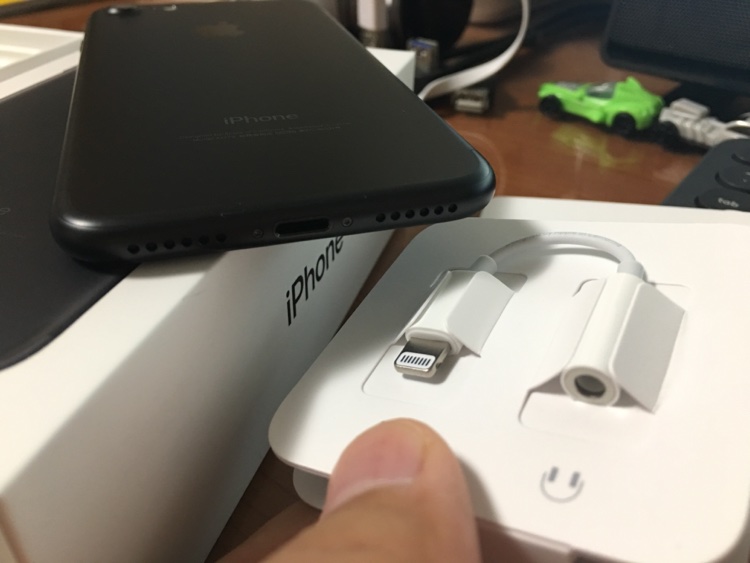
The Lightning to 3.5mm headphone jack adapter bundled with iPhone 7
Given that iPhone's predecessor is iPod the digital music player, the listening experience is still a big part of the device for many people. So the removal of the 3.5mm headphone jack was bound to be controversial, despite the fact that Apple has provided many options to mitigate the inconvenience.
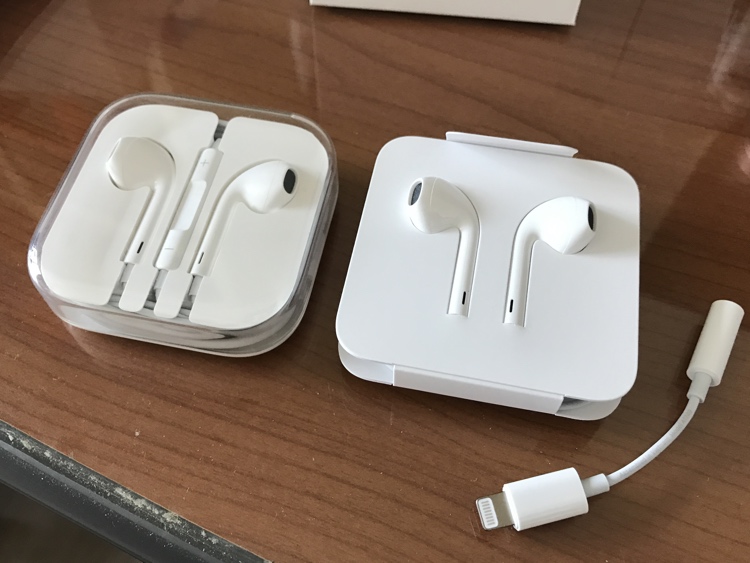
EarPods from iPhone 5 (left) and iPhone 7 (right), with the adapter at the far right
Primarily, the EarPod earphones bundled with iPhone 7 use Lightning connector, giving you at least one native solution. Along with that is a Lightning to 3.5mm headphone jack adapter that you can use with any other regular earphones and headphones. Because Lightning port is fully digital, the both the adapter and the earphones have DAC modules inside to provide analog audio output. Unless you must charge the phone at the same time, you're not worse off than before as long as the adapter works as intended.
On a side note, providing both a DAC-equipped earphone and an adapter resulted in sacrificing the plastic case for the earphones, likely because of costs. The case is now simply a throwaway paper packaging.
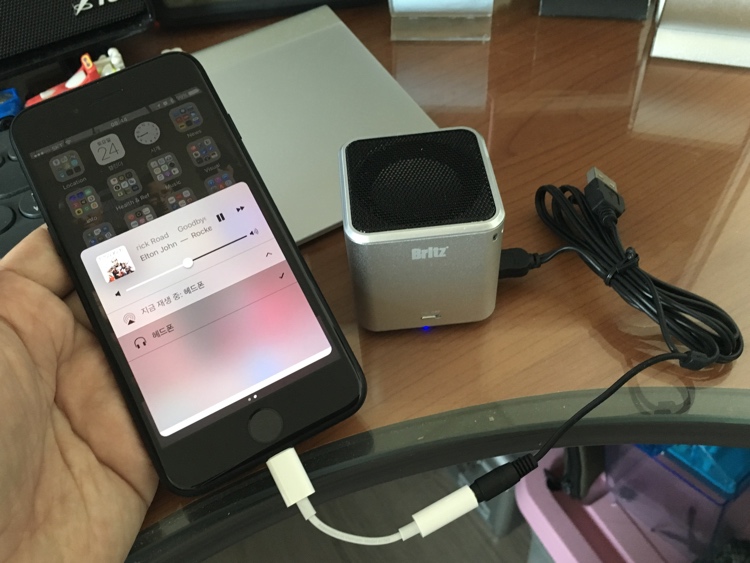
Connecting a speaker to iPhone 7 via the adapter
Does the adapter work? Quick way to find out is to plug it into a speaker. As soon as the adapter is plugged into the iPhone, the sound output path automatically changes to "Headphones" and sound comes out of the speaker. No problems here.
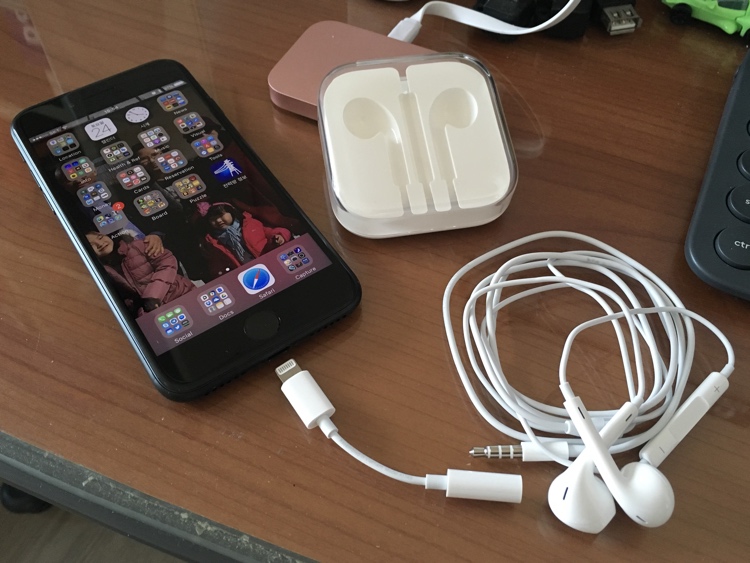
Connecting the EarPod earphones with headphone jack to iPhone 7 using the adapter
Lots of people do have earphones with remote controls like Apple's default EarPod, so I tested that out as well.
Again, it worked without an issue. Although not shown in the video, I also verified that the microphone function worked by making phone calls with the EarPod + adapter combo plugged in. So I technically, headphones with remote controls and a microphone that's compliant with Apple specifications are supposed be still fully functional. But depending on the implementations, I expect some models to have issues and maybe Apple could fix it via an iOS update. As a matter of fact, iOS 10.0.2 does fix a problem where the remote controls may not work properly.
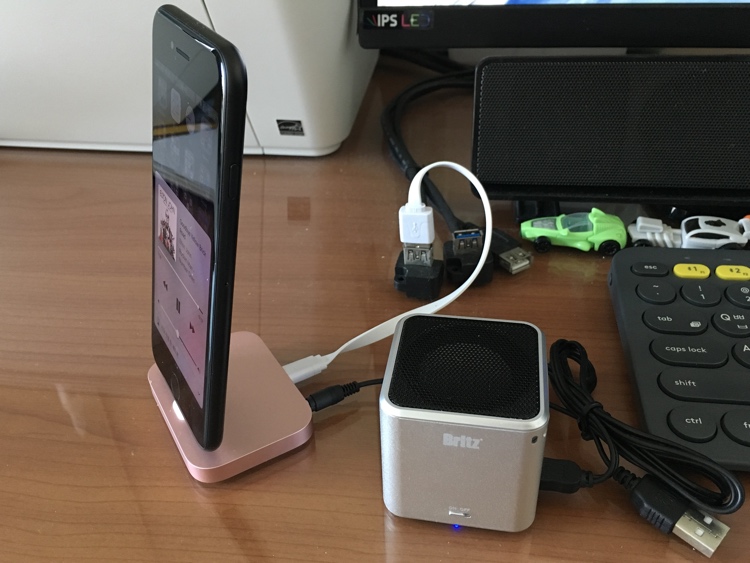
Charging and listening to music at the same time on iPhone 7 using Apple's Lightning Dock
Even if the adapter was flawless, it cannot solve the problem of charging while listening. Solutions do exist, but for a price. Apple's own solution is the iPhone Lightning Dock, selling for $39 in white or $49 in other colours. This has been available for over a year and I own a rose gold version myself. The dock features a headphone jack at the back, so you can listen to music with a headphone while the phone is charged on the dock. I found out that it works exactly as intended, but not everyone charges the phone in a position where a dock can be placed. Therefore, some people will have to get a 3rd party solution that will become available in the coming months.
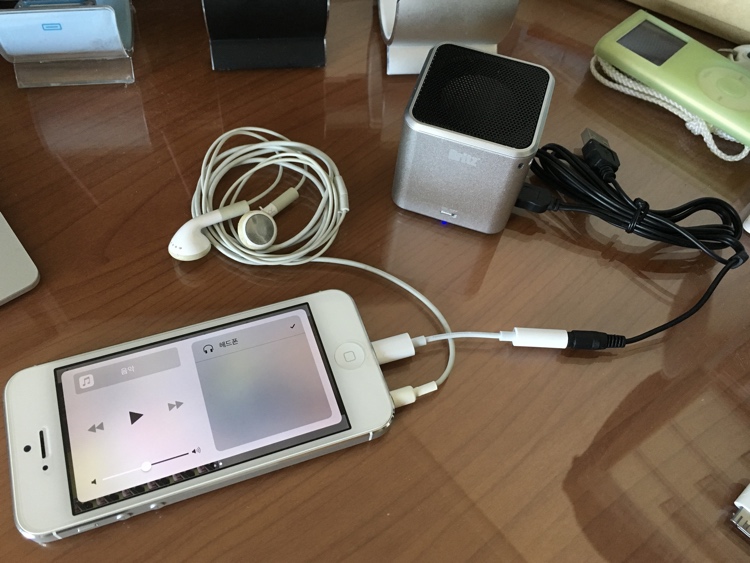
Using both the headphone jack and the Lightning port for audio on iPhone 5
Meanwhile, you may be curious if the adapter itself is exclusive to iPhone 7. It is not, of course. Apple said that it will work with any Lightning port equipped iOS device as long as iOS 10 is installed. While personally confirming this with my iPhone collection, I wondered if you could use it to send audio to two external devices from the older iPhones, like what you see above. In my testing, I found out that sound came out only from the Lightning adapter when both were plugged in. Therefore it's largely pointless to use it in this manner.
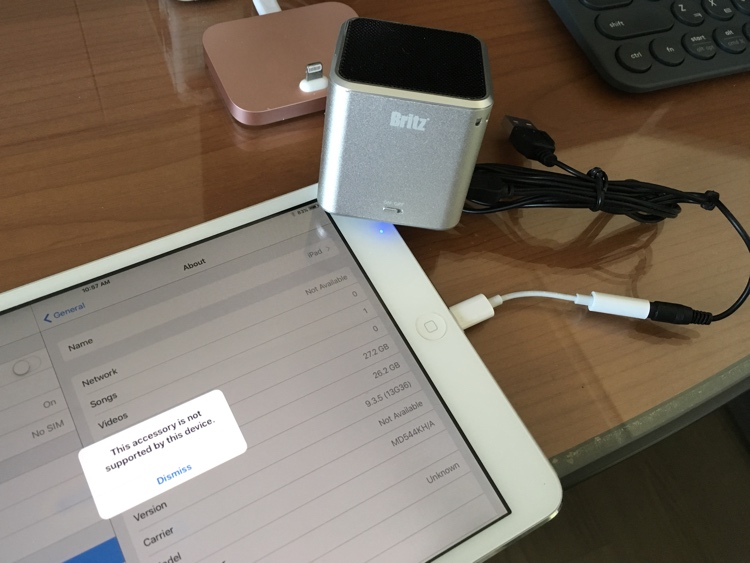
What happens when the Lightning to 3.5mm adapter is connected to iPad mini 1st gen
But what if you don't have iOS 10 installed? Then it won't be properly recognized and thus be unusable. You can see this with my 1st generation iPad mini, which won't receive an iOS 10 update. Others have confirmed that the adapter wasn't working on iOS 10 capable devices that still had iOS 9 installed. This means that the support for the adapter is dependent more on the OS than the hardware. Funny enough, the Lightning Dock's headphone jack works just fine with iOS 9 (and obviously, my iPad mini), suggesting that the DAC module used is different.
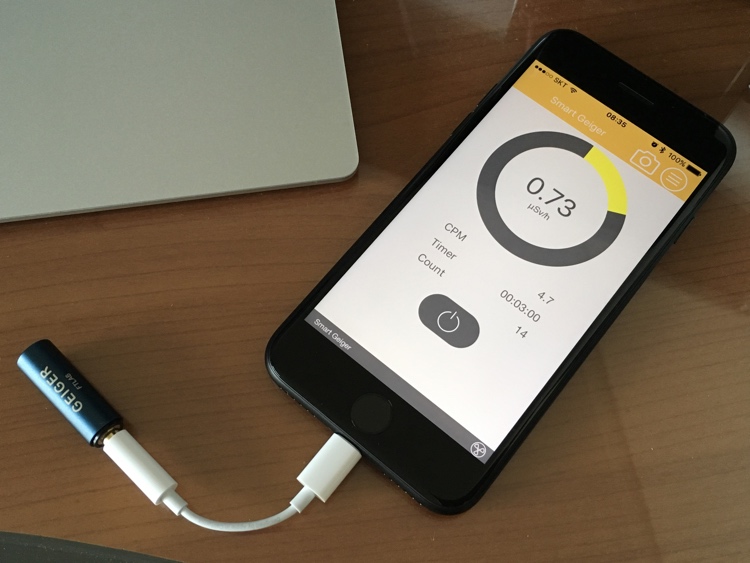
Connecting Smart Geiger radiation counter on iPhone 7 using the adapter
Last thing I wanted to check with the adapter was its compatibility with accessories that used the headphone jack in a creative, non-audio way. The Smart Geiger radiation counter is one such thing. It operates on the microphone bias voltage and sends back radiation count signal over the microphone input. With the device plugged into iPhone 7 via the adapter, the companion app properly recognized it and worked as expected.
To summarize, the much of the problems arising from the lack of a headphone jack on iPhone 7 can be alleviated with the included adapter. Some early teething problems may exist, though. And for those who need to charge the phone and listen on the headphones at the same time and don't like the Apple dock, a bit of patience is needed until the right accessories to fill the void comes along. Whatever the case, I feel that it won't make much of an issue after about a year.